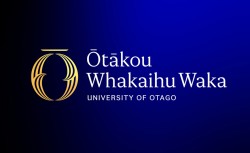The 2013 New Zealand Disability Survey estimated 24% of the total population were disabled, with those aged 65 or more years more likely to be disabled (59%) than adults under 65 years (21%) or children under 15 years (11%). (Statistics New Zealand, 2014) The survey also found that Māori and Pacific peoples had higher than average disability rates, after adjusting for age differences.
During 2022 the Ministry of Health and Whaikaha compiled data from the Disability Support Services (DSS) database. Their report showed that DSS recipients aged less than 70 years had four times the risk of hospitalisation due to COVID-19 compared with the rest of the population. This group of people were 13 times more likely to die of or with COVID-19. People receiving DSS in residential services required the highest level of support need compared to the overall New Zealand population. For example, this specific group were 19% more likely to be COVID-19 positive, 8 times more likely to be admitted to hospital with COVID-19, and 47 times more likely to die of or with COVID-19.
Due to lack of disaggregated data by ethnicity and other data constraints, there is limited evidence available regarding the direct impacts of COVID-19 on tāngata whaikaha Māori in Aotearoa, such as infection rates, hospitalisation, mortality, and long COVID.
There is also evidence of disproportionate multi-dimensional social impacts from COVID-19 on disabled people and tāngata whaikaha Māori. These groups were more likely to have felt lonely and further concerns around access to appropriate support services, lack of emotional support, financial strain, unemployment, and a lack of adequate and timely communication to vulnerable groups.
This project will do an in-depth analysis of COVID-19 resilience and pandemic preparedness specifically tailored for the Māori population and specifically tāngata whaikaha Māori. Data will also act as a baseline of pandemic-related health needs and preparedness and enable comparison between pandemic outbreaks – either for COVID-19 or future pandemics caused by other infectious diseases.
Further information: Te Ao Mārama website
>> PROJECT STARTED - 1st July 2024





